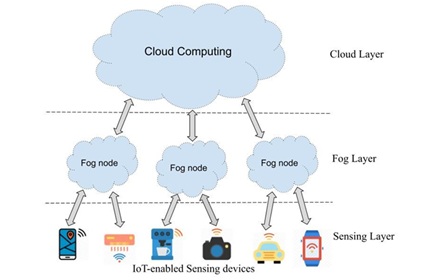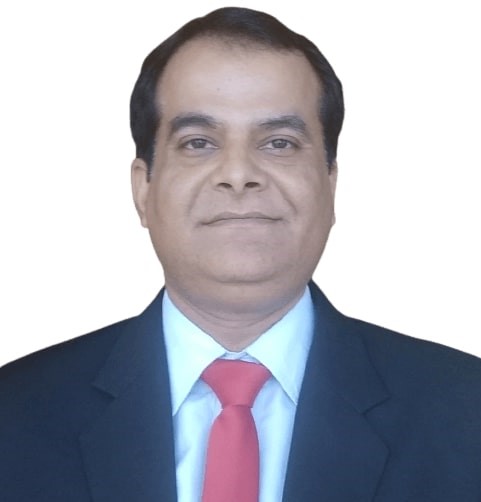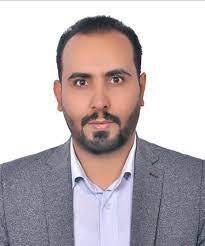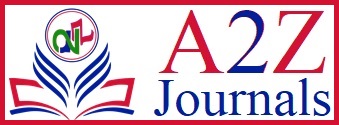Intelligent Load Balancing Framework for Optimal Resource Utilization in Fog-enabled IoMT Environment

DOI:
https://doi.org/10.54060/a2zjournals.jieee.120Keywords:
Internet of Medical Things, Fog Computing, Machine Learning, Load Balancing, Security and PrivacyAbstract
The rapid adoption of Internet of Things (IoT) technologies in healthcare has given rise to the Internet of Medical Things (IoMT), which has transformed patient care and medical services. The IoMT, when combined with Fog Computing, provides a powerful paradigm for processing and analyzing healthcare data at the network edge. This paper proposes an innovative intelligent load balancing framework designed specifically for fog-enabled IoMT environments for optimizing resource utilization, improving system performance, and ensuring timely and efficient healthcare service delivery. The framework dynamically distributes computing tasks among fog nodes based on real-time parameters such as node capacity, latency, and workload. By combining machine learning (ML) models and data analytics, the system adapts to changing patterns in medical data, ensuring adaptive load distribution and faster response times. The proposed framework addresses the unique challenges facing healthcare applications, such as low latency and energy consumption in data transmission.
Downloads
References
M. Rath and V. K. Solanki, “Performance improvement in contemporary health care using IoT allied with big data,” in Handbook of Data Science Approaches for Biomedical Engineering, Elsevier, pp. 103–119, 2020.
A. Zaguia, D. Ameyed, M. Haddar, O. Cheikhrouhou, and H. Hamam, “Cognitive IoT-based e-learning system: Enabling context-aware remote schooling during the pandemic,” J. Healthc. Eng., vol. 2021, p. 7358874, 2021.
S. Malik, K. Gupta, D. Gupta, A. Singh, M. Ibrahim, A. Ortega, N. Goyal, and H. Hamam, “Intelligent load-balancing frame-work for fog-enabled communication in healthcare,” Electronics, vol. 11, p. 566, 2022.
K. Patel et al., “FORCE: Optimal resource utilization framework for fog-enabled green communication in IoMT,” in 2024 IEEE International Conference on Advanced Networks and Telecommunications Systems (ANTS), pp. 1–6, 2024.
N. Taimoor and S. Rehman, “Reliable and resilient ai and iot-based personalised healthcare services: A survey,” IEEE Ac-cess, vol. 10, pp. 535– 563, 2021.
N. Chelani, S. Tripathy, M. Kumhar, J. Bhatia, V. Saxena, S. Tanwar, and A. Nayyar, “Federated learning for internet of medical healthcare: Issues and challenges,” Scalable Computing: Practice and Experience, vol. 25, no. 5, pp. 4442–4455, 2024.
A. Asghar, A. Abbas, H. A. Khattak, and S. U. Khan, “Fog based architecture and load balancing methodology for health monitoring systems,” IEEE Access, vol. 9, pp. 96189–96200, 2021.
M. Kumhar and J. Bhatia, “Software-defined networks-enabled fog computing for iot-based healthcare: Security, chal-lenges and opportunities,” Security and Privacy, p. e291.
M. Ijaz, G. Li, H. Wang, A. M. El-Sherbeeny, Y. Moro Awelisah, L. Lin, A. Koubaa, and A. Noor, “Intelligent fog-enabled smart healthcare system for wearable physiological parameter detection,” Electronics, vol. 9, no. 12, p. 2015, 2020.
G. Manogaran and B. S. Rawal, “An efficient resource allocation scheme with optimal node placement in iot-fog-cloud architecture,” IEEE Sensors Journal, vol. 21, no. 22, pp. 25106–25113, 2021.
A. M. Shanshoola and N. A. F. Abbasa, “A fog computing framework in iot healthcare environment: Towards a new method based on tasks significance,” system, vol. 7, p. 8.
C. D. A. S. Vaishnavi Kadam, Soham Raorane, “Fog-Enabled Efficient Asthma Monitoring System,” International Journal for Research in Applied Science & Engineering Technology, vol. 11, no. 5, pp. 1–8, 2023.
V. K. Stephen, P. Udinookkaran, R. P. De Vera, and F. R. A. Al-Harthy, “Internet of medical things (iomt) fog-based smart health monitoring,” in 2023 International Conference on Advances in Computing, Communication and Applied Informaics (ACCAI), pp. 1–8, IEEE, 2023.
W. Bai and A. Huang, “Privacy-preserving collaborative sharing for sharing economy in fog-enhanced iot,” IEEE Access, 2023.
P. Zuo, G. Sun, Z. Li, C. Guo, S. Li, and Z. Wei, “Towards secure transmission in fog internet of things using intelligent re-source allocation,” IEEE Sensors Journal, 2023.
J. Singh, P. Singh, M. Hedabou, and N. Kumar, “An efficient machine learning-based resource allocation scheme for sdn-enabled fog computing environment,” IEEE Transactions on Vehicular Technology, 2023.
M. Lalit, G. Bathla, and S. Singh, “Enhancing healthcare 4.0: A fog computing-enabled, secure, and energy-efficient framework,” International Journal of Intelligent Systems and Applications in Engineering, vol. 12, no. 11s, pp. 406–413, 2024.
Z. Lin, L. Lu, J. Shuai, H. Zhao, and A. Shahidinejad, “An efficient and autonomous planning scheme for deploying iot services in fog computing: A metaheuristic-based approach,” IEEE Transactions on Computational Social Systems, 2023.

Downloads
Published
How to Cite
CITATION COUNT
License
Copyright (c) 2025 Malaram Kumhar, Jitendra Bhatia

This work is licensed under a Creative Commons Attribution 4.0 International License.

























